Going Green: Eco-friendly gifts for Mother’s Day to spoil number one!
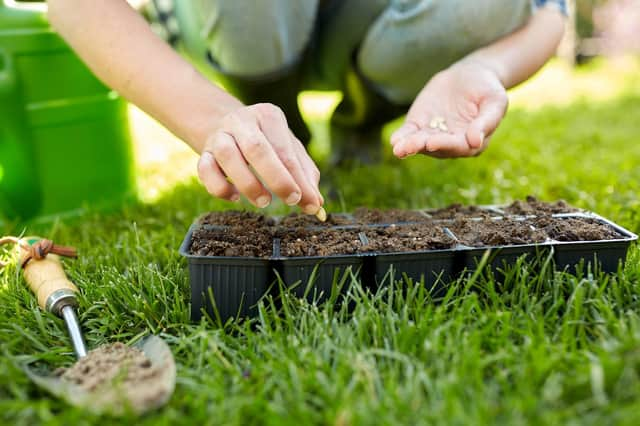

Green Green campaigner and consumer expert, Angela Terry, separates climate change facts from fiction and here she explains how you can take simple, practical steps to help save the planet. Follow @ouronehome & visit https://onehome.org.uk/ for more advice.
Q: I want to make a fuss of my mum on Mother’s Day, but is there an eco-friendly way to do it?
A: Yes, you can spoil your mum without driving up your carbon emissions.
Mother Earth will thank you for it! Here are some ideas:
Plant a seed
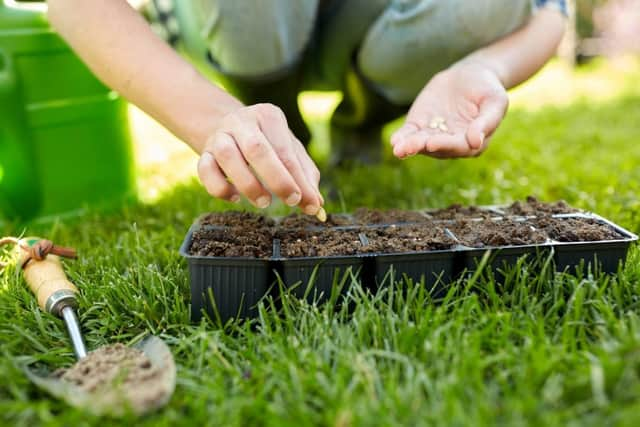

Instead of the traditional bouquet of flowers, buy her seeds to grow her own.
Advertisement
Hide AdAdvertisement
Hide AdNot on the High Street offers a Grow Your Own Bouquet kit (£16) or a You are my Sunshine personalised packet of sunflower seeds, which costs just under a fiver.
If your mum has a garden, you could buy her organic flower or fruit and vegetable seeds from social enterprise Seed Co-operative’
Alternatively, you could post a ready-grown house plant to her.
Bloom and Wild offers a range of letterbox-friendly plants, including low-maintenance succulents.Bouquets
It’s a good idea to try and avoid cut flowers, as most are flown in from overseas.
If you really want to send a bouquet, try to choose British flowers.
Waitrose Flowers has a British grown range or check out the website ‘Great British Florist’.
No novelty
Novelty gifts are an environmental no-no.They provide a quick laugh and soon end up in landfill.
Advertisement
Hide AdAdvertisement
Hide AdIt’s a much better idea to give your mum something she actually wants or needs.
Too many of our homes are drowning in stuff, which is why decluttering has become such a trend.
Eco edibles
If in doubt, go for something edible.
Environmentally-friendly food and drink gifts include: Fairtrade chocolates, a bottle of organic wine or a selection of nibbles, like nuts and crisps.
You could really show her you care by baking her a cake or some biscuits yourself.
Alternatively, you may wish to treat her to afternoon tea.
To make it ultra green, be adventurous and go plant-based.
You can do a search on the website Happy Cow to find out the best places near you.
You could even make your own afternoon tea for her at home, using the BBC’s afternoon tea recipes.
Beauty
Treat her to beauty products made from natural ingredients by British brands Evolve, Neal’s Yard or UpCircle.
If you’re into crafting, make her bath bombs scented with her favourite flower using essential oils, like rose or lavender. YouTube has lots of tutorials.
Advertisement
Hide AdAdvertisement
Hide AdThe gift of time
You don’t need to flash the cash to show you care. What mums often value most is spending time with their children.
You could arrange a trip to the cinema or a lovely country walk or take her to a place that holds special memories.
Celebrity spot
Having a veg plot used to be seen as a retirement hobby. Now it’s an A-lister essential – and also a fantastic way of helping the environment (as long as you avoid harsh chemical fertilisers and pesticides).
US media mogul Oprah Winfrey grows fruit and veg on her property on the Hawaiian island of Maui, where she lives part-time.
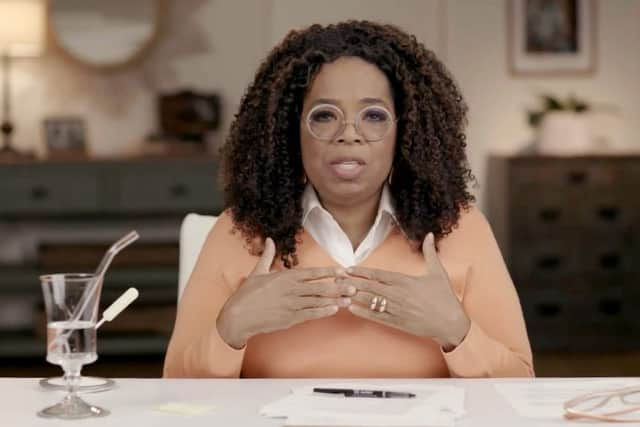

Reality queen Kim Kardashian grows her own in the grounds of her Californian mansion – while supermodel Cindy Crawford and rock star Pink are also homegrown advocates.
Green swap
Try not to buy nylon undies as artificial fibres made from petrochemicals are essentially plastics.
They release microplastics in a washing machine and will add to landfill.
Opt instead for bamboo or organic cotton underwear. Earth Wardrobe has affordable options.
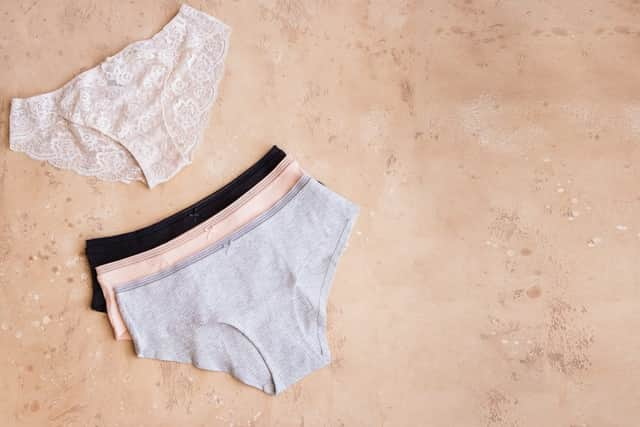

What is wrong with using peat in your garden?
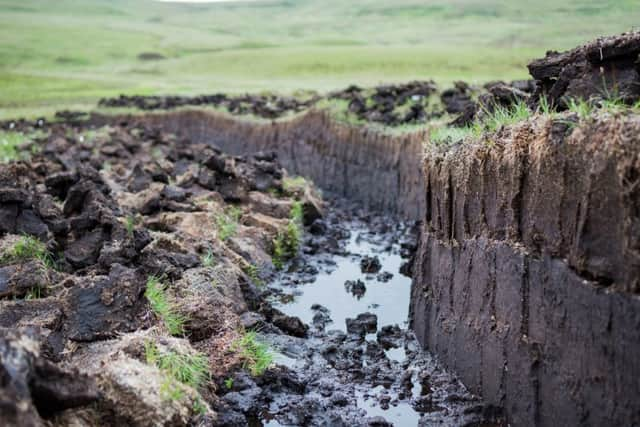

Peat has been commonly added to garden compost for years
Many gardeners swear by it.
Advertisement
Hide AdAdvertisement
Hide AdBut a government consultation has just completed on the potential ban on the sale of peat to gardeners in England and Wales from 2024.
We await the outcome, but here’s why the use of peat is so contentious:
What is peat?
An accumulation of decayed vegetation, it’s a special kind of waterlogged turf found only in what we call peatlands.
Taking thousands of years to form, peatlands are special kinds of wetlands.
In terms of landscapes, they are varied. In temperate countries, like the UK, they take the form of treeless bogs and moors. In hotter climes, such as in Southeast Asia, they tend to be swamp forests.
Carbon storage
Environmentally, peatlands are so important as they store huge amounts of carbon.
In fact, they are the most efficient carbon sink on the planet.
Worldwide, peat soils contain more than 600 gigatonnes of carbon, which represents up to 44 per cent of all soil carbon.
Advertisement
Hide AdAdvertisement
Hide AdThis is more than the carbon stored in all other vegetation types, including the world’s forests.
When we dig them up or damage peatlands, we release vast quantities of carbon dioxide into the atmosphere.
For example, in 2015, a combination of dry weather and decades of forest clearing and peatland drainage meant Indonesia experienced extensive peat swamp forest fires.
They emitted nearly 16 million tonnes of CO2 a day – more than the whole of the USA.
This is why the protection of peatlands is critical in the climate fight. We need them to reach net zero.
Flooding
Peatlands also provide natural defences against flooding.
Researchers from the University of Manchester showed that by restoring peatlands on the Kinder plateau in the Peak District National Park, they could alleviate the chances of flooding downstream.
As temperatures rise, extreme weather events and intense rainfall are becoming more common.
Peatlands offer a crucial means of curbing these rising waters.
Gardening
You don’t have to use peat-based compost on your garden.
There are many effective alternatives.
Advertisement
Hide AdAdvertisement
Hide AdWickes and B&Q both offer basic multipurpose, peat free composts.
Look out too for British brand Bathgate’s quality peat-free compost.
Scunthorpe-based Coco and Coir makes sustainable compost from coconut husks, which used to be thrown away as waste. You can also make your own.
Fact or fiction
Using your microwave saves more energy than using your oven. True!
When cooking and heating food, microwaves are more efficient, as the way they cook is different.
Cooking a jacket potato will be quicker and will save you money and carbon.
For previous articles visit: